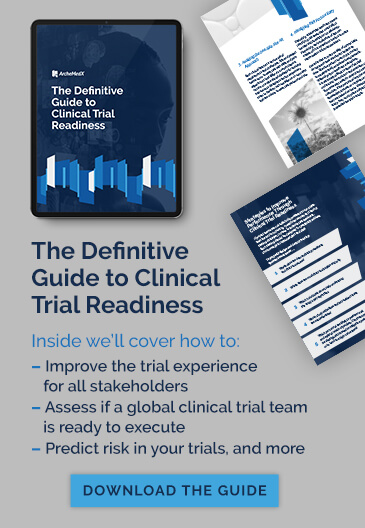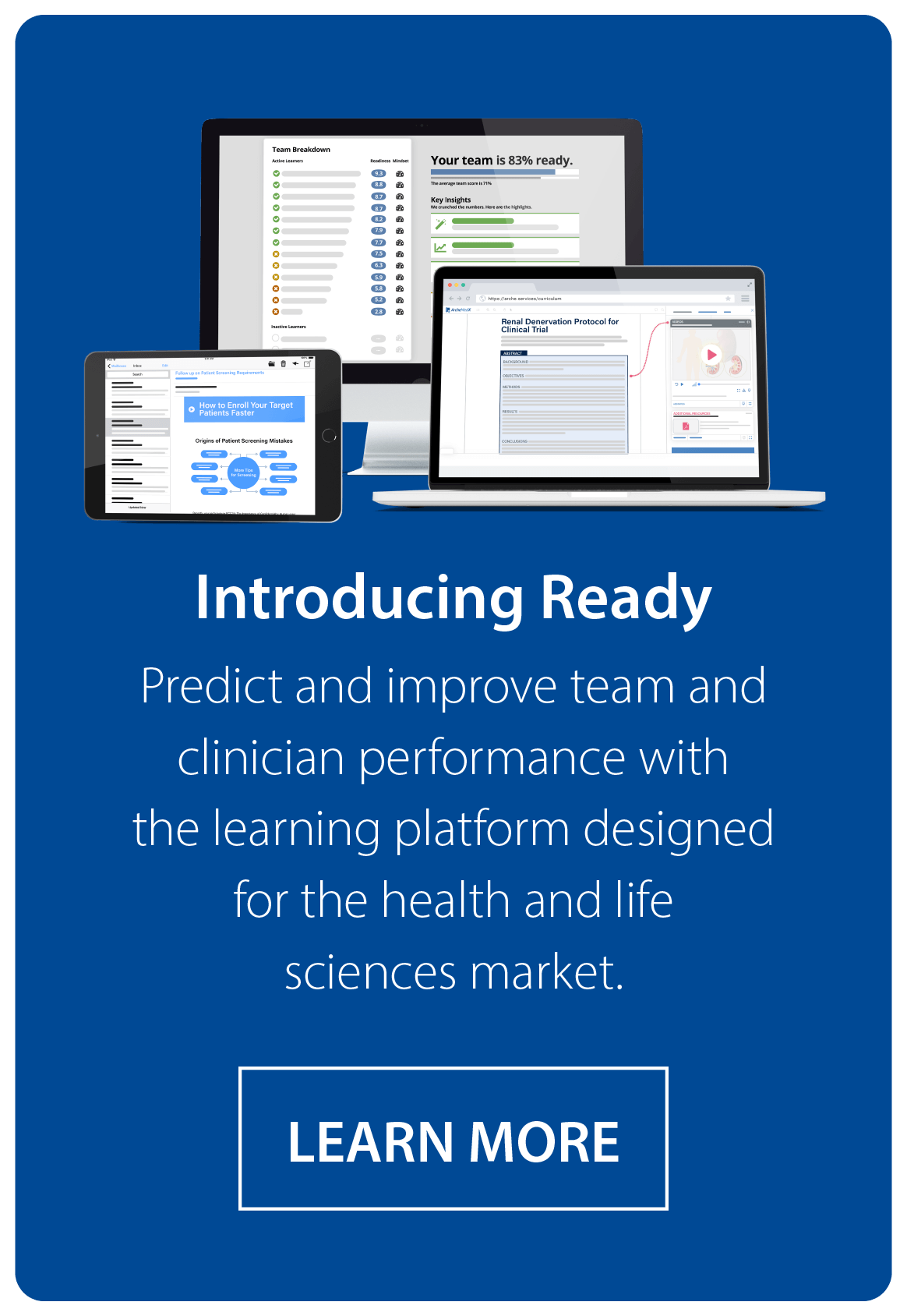The following is an excerpt from our ebook “The Definitive Guide to Clinical Trial Readiness.” Click here to read the ebook in its entirety.
Why Does Clinical Trial Readiness Matter?
Readiness matters because practical staff training is the heart of the clinical trial operation. Teams and sites that are better prepared are more likely to successfully recruit patients, provide better patient experiences, avoid protocol deviations, and meet deadlines. Clinical trial readiness is an essential part of keeping the many people who participate in clinical trials safe while ensuring the trial runs smoothly, remains in compliance, and stays within budget.
From the sponsor’s perspective, clinical trial readiness mitigates risk – something that is increasingly important given the growing complexity of trials. Assessing and striving for clinical trial readiness enables project team leaders to better anticipate how their teams will perform.
Unanticipated public health or geopolitical events, like the present pandemic, further complicate efforts to effectively run clinical trials. Preventing the missteps that can lead to delays in site identification, initiation, or patient enrollment, along with anticipating the detailed actions that can keep screen failure rates low or prevent procedural errors related to randomization, dosing, or protocol procedure implementation, have even greater value during these challenging times when teams and operations are already unusually stressed.
Fortunately, there are ways to reduce the risk of complications and missteps and improve the likelihood of running an on-time, on-budget, clinical trial. One that delivers widespread benefits, especially in uncertain times, is elevating your approach to the training and insights necessary to ensure your staff, sites, and patients are sufficiently prepared.
Strategies to Improve Performance Based on Clinical Trial Readiness
If project teams are not sufficiently prepared to run a trial, then the key to improving operational outcomes is having training strategies in place to improve trial readiness. Such training should be designed to specifically address shortcomings in individual sites and staff. To properly design and deploy training, sponsors must know . . .
- Which sites are demonstrating readiness and likely to succeed
- Which sites are most likely to struggle and why
- Which individuals do not fully understand the study’s key objectives
- Which study objectives and key subject areas are misunderstood
- Which personnel are likely to perform well and against which objectives. Can these people be strategically placed to mitigate a point of risk, or to tend to a high-value item?
When confronted with an unanticipated public health or geopolitical event, like a pandemic, the insights can be more acutely focused to inform decisions such as these:
- Should a trial that is underway be paused? Sped up? Shut down?
- Which sites will be able to move forward and which won’t?
- Which procedures can be accomplished at home or by call centers, and how can staff be quickly prepared to ensure patient safety and minimize loss of data in the new circumstances?
- How can team members be made ready to take on new roles and acquire necessary new skills?
- What additional patient education is necessary in this new paradigm?
This blog post is an excerpt from our ebook “The Definitive Guide to Clinical Trial Readiness.” Click here to read the ebook in its entirety.





